Projects Gallery
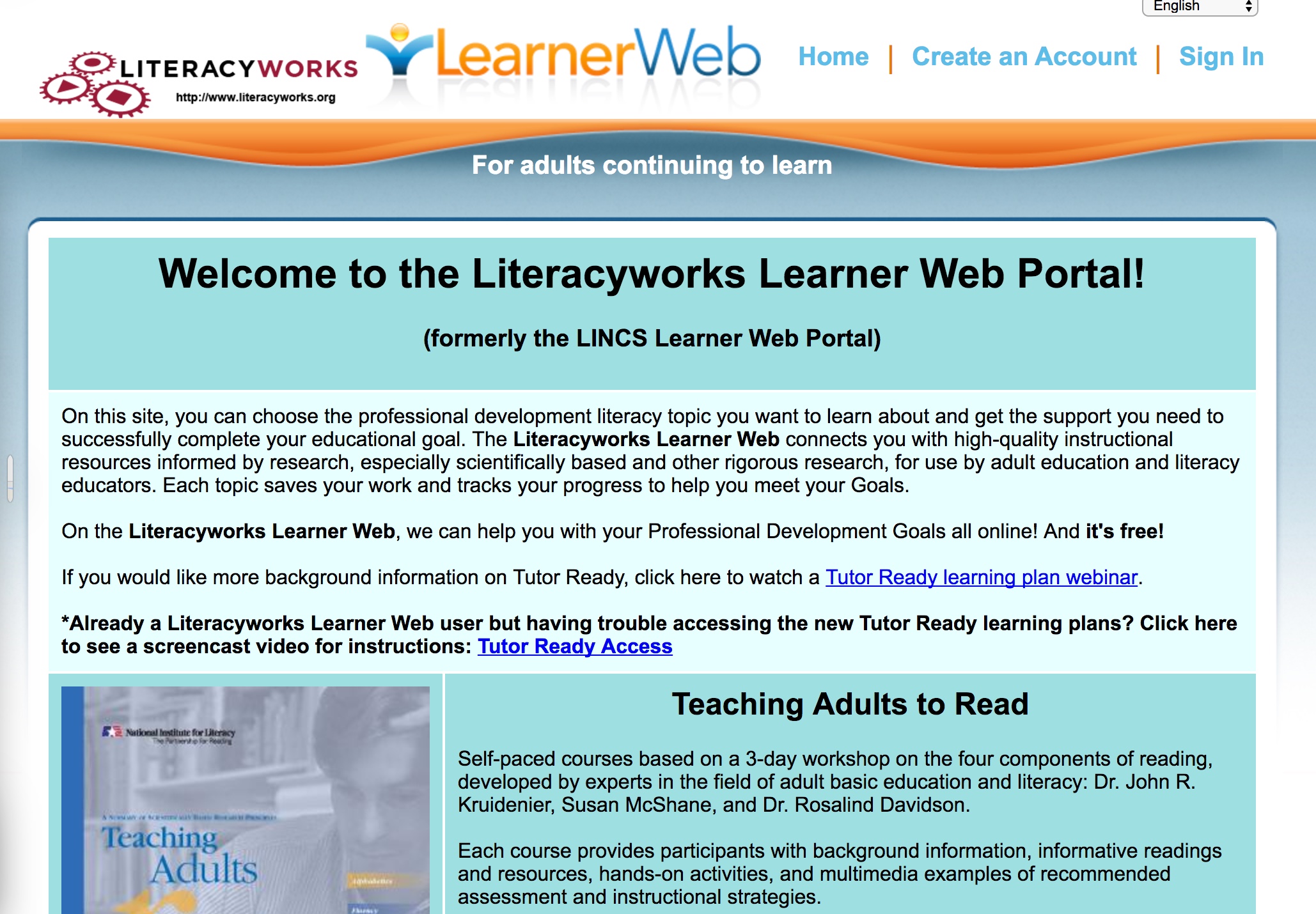
LINCS Learnerweb
Literacyworks Learner Web Portal
Teaching Adults to Read Online
• Teaching Adults to Read
• Tutor Ready: Resources for Tutoring Adults in Reading
Visit the site: http://literacyworkslincs.learnerweb.org
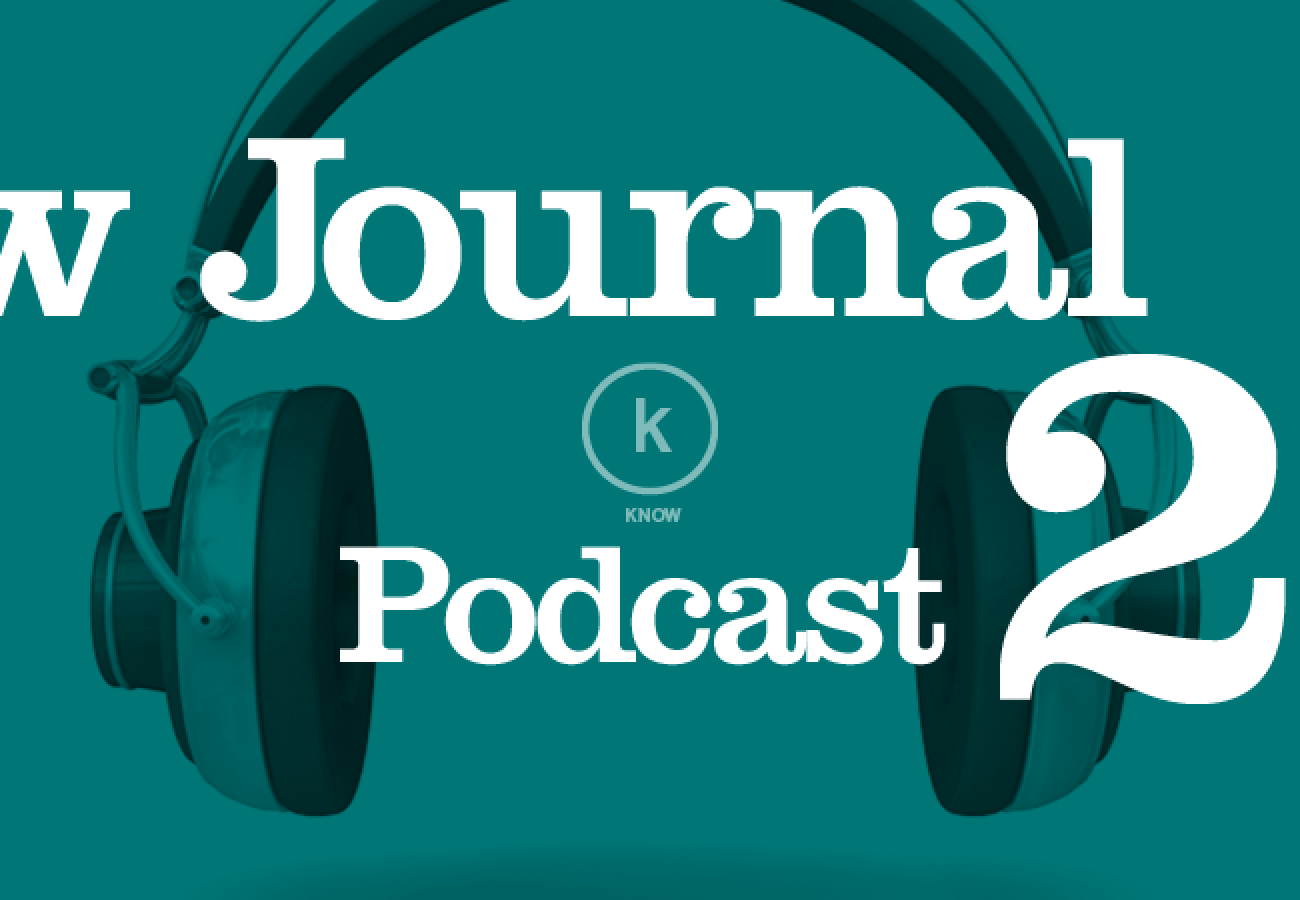
Know Journal
Literacyworks also supports literacy and lifelong learning through a variety of projects, including Know: the Journal of Lifelong Learning
We support these programs through the generosity of sponsors and donors to our Literacyworks Fund.

WordUp Fair
WordUp Fair was Literacyworks' Community Learning Fair

Enrique's Story
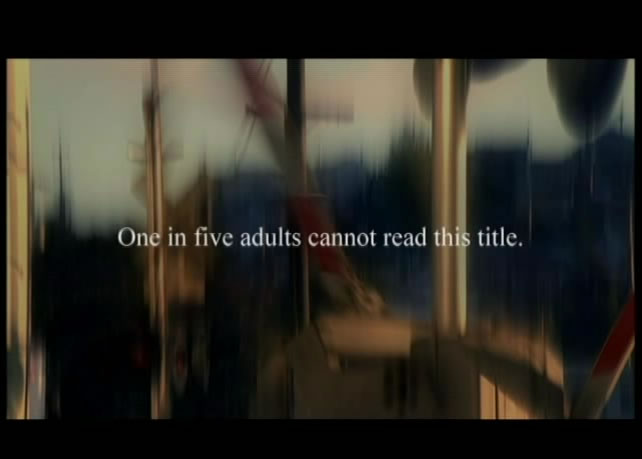
Leon: A Learner's Perspective
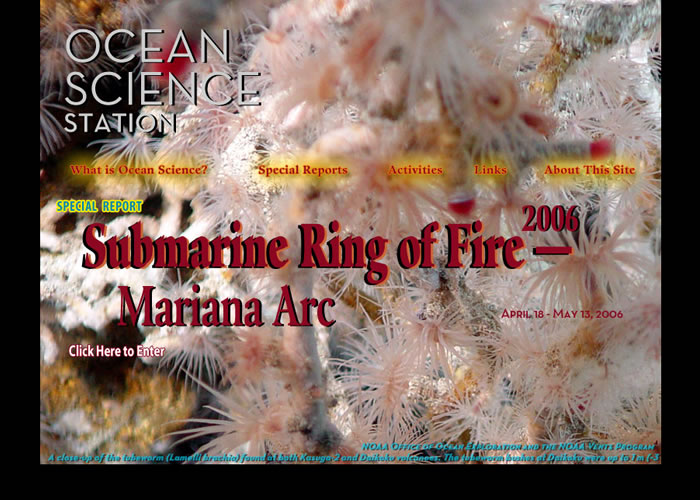
Ocean Science Station
Ocean Science Station, like its sister site Polar Science Station, was created to support a series of scientific research journeys with learning activities that could be used by literacy programs. Students can follow along as teachers and graduate students accompany these voyages and post daily journals and reports.
Ocean Science Station is partially funded by the National Science Foundation.
View site: http://www.literacynet.org/ocean/
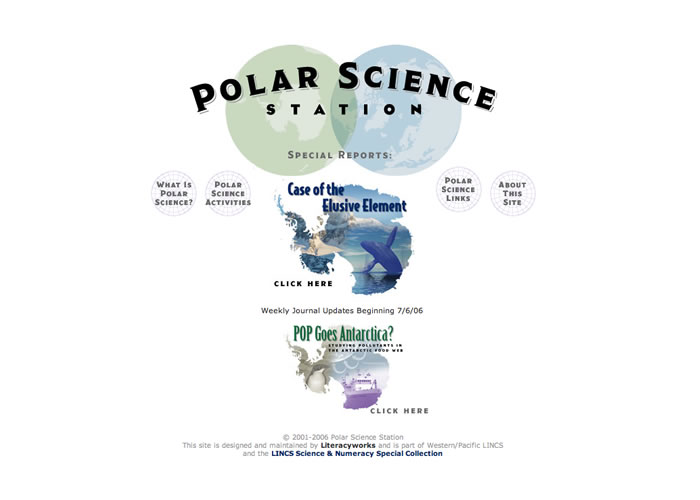
Polar Science Station
Case of the Elusive Element
Polar scientists make observations and collect data to answer questions about the Arctic (the north polar region) and the Antarctic (the south polar region). These regions are unique and isolated. However, the Earth is a global system, so all regions are related. We can learn a lot about physical science, life science, and Earth/space science when we study the polar regions.
Visit the site: http://www.literacynet.org/polar/
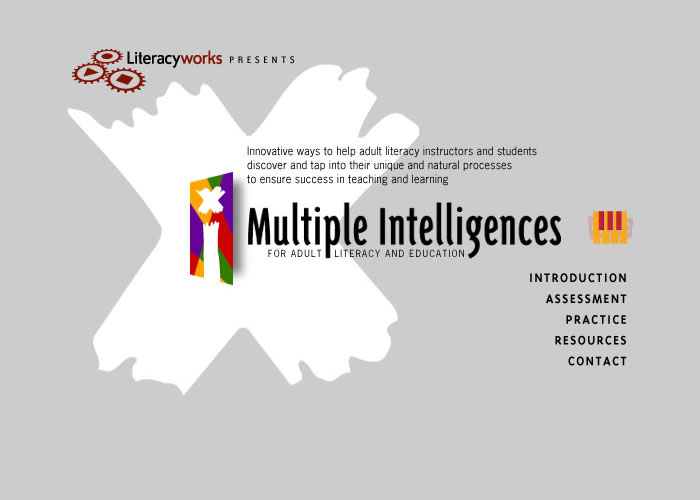
Multiple Intelligences
How We All Learn Differently
Literacyworks created a very popular site that helps adult literacy teachers and tutors radically change their approach to teaching. Multiple Intelligences, a theory of education developed by Howard Gardner, posits that students process information in a variety of ways that have not been adequately addressed by established teaching methods. His theory is that if teachers tailor their methods to take advantage of students' strengths in different areas, student performance will improve drastically.
This site uses multimedia to illustrate these new approaches and show how engaging they can be. It also features a questionnaire that teachers and tutors can help learners complete to try to determine which intelligences they favor, which in turn can help teachers and tutors focus their instruction methods to address the unique needs of their learners.
Visit the site: http://www.literacynet.org/mi/flash.html
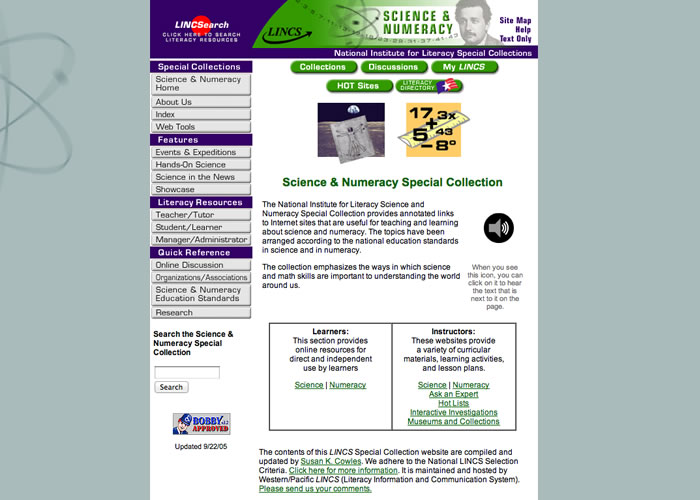
Science LINCS: Science Numeracy
The National Institute for Literacy Science and Numeracy Special Collection provides annotated links to Internet sites that are useful for teaching and learning about science and numeracy. The topics have been arranged according to the national education standards in science and in numeracy.
The collection emphasizes the ways in which science and math skills are important to understanding the world around us.
View the site: http://literacynet.org/sciencelincs/

